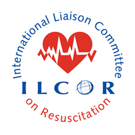Statement Highlights:
- In-hospital cardiac arrest is a high-risk event among hospitalized patients of all ages worldwide and is associated with high rates of poor patient outcomes, including death.
- Improving in-hospital cardiac arrest quality of care for adult and pediatric patients requires a comprehensive set of actions that are crucial to survival as well as overall patient outcomes.
- Leaders in resuscitation science identified 10 steps toward improving in-hospital cardiac arrest outcomes and quality of care.
November 10, 2023 — Worldwide, cardiac arrest among hospitalized people of all ages is a high-risk event associated with significant morbidity and mortality. To address a growing need to improve the quality standards for responding to an in-hospital cardiac arrest (IHCA), the International Liaison Committee on Resuscitation (ILCOR) has identified 10 steps that can lead to better patient outcomes and survival. These steps can be embedded in a system of care that includes: plans and preparations for IHCA, prevention of IHCA when avoidable, implementation of effective resuscitation education and training, the delivery of high-quality guidelines-based resuscitation care, and ongoing evaluation and adjustments for improvements within a culture of person-centered care.
ILCOR was formed in 1992 to unite leading resuscitation organizations worldwide. Members include The American Heart Association, European Resuscitation Council, Heart and Stroke Foundation of Canada, Australian and New Zealand Committee on Resuscitation, Resuscitation Councils of Asia, Indian Resuscitation Council Federation, and the collaborating organization, International Federation of Red Cross.
“Over the last 10 months writing group members have been meeting to brainstorm, research, discuss and refine goals that reflect a global, comprehensive and practical approach to improving IHCA care,” said Robert Greif, M.D., MME, FERC, FEAMS, professor emeritus, University of Bern, Switzerland. “We’re hopeful that institutions and health systems will use these steps, prioritizing them by what each system needs to achieve the highest improvements in their IHCA care. This publication is in line with ILCOR’s vision to save more lives globally through resuscitation and case studies of success, tools for implementation and teaching approaches that will follow soon.”
People who experience IHCA require coordinated, effective care from the start of hospital admission through when they are discharged. Researchers hope the guidance outlined in these 10 steps can provide the framework health care institutions use to assess where there are gaps, systematically approach those gaps with evidence-based best practices, and build a community committed to transforming the care of people who experience IHCA.
The 10 Steps to improve in-hospital cardiac arrest outcomes and quality of care:
Plan and Prepare
1. Build and support governance and infrastructure for a resuscitation program.
2. Collect data to measure and improve resuscitation processes and outcomes.
3. Implement effective education and training for resuscitation.
Prevent
4. Establish patient and family goals of treatment early and reassess often.
5. Stop preventable in-hospital cardiac arrest.
Perform
6. Develop and deploy an effective resuscitation response system.
7. Deliver guideline-based resuscitation care.
8. Deliver guideline-based post-cardiac arrest care.
Principles and Culture
9. Implement a person-centered culture of excellence in care.
10. Ensure the well-being of health care professionals
The 10 steps identified in this statement represent the consensus of a writing group including more than 30 multidisciplinary experts in the health care field and an external advisory group. This work builds upon efforts of the Global Resuscitation Alliance, which aims to improve the out-of-hospital rates of resuscitation efforts through community-based programs that continually monitor and measure activations to enhance effectiveness.
This expert writing group hopes that the identification of these goals will assist hospitals and health systems establish, support, reinforce, evaluate and improve their resuscitation systems for IHCA with the aim of enhancing survival outcomes, ensuring quality care and fostering continuous improvement.
See the full statement for more in-depth detail of how these steps can be implemented.
For additional queries please contact: ilcor@heart.org
